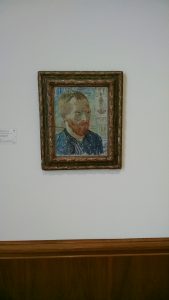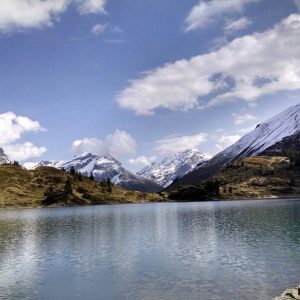This past week, the program took us to Berlin and Prague for 6 days. Overall, it was an amazing experience. Berlin is so full of history because the Third Reich was based there, and the city was split during the Cold War. Our first night there, we took a tour of the city. Our guide took us to the Memorial to the Murdered Jews of Europe, which was breathtaking and very thought invoking. The memorial is pictured below.
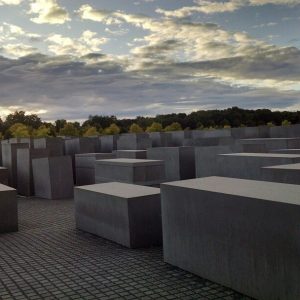
Memorial to Murdered Jews of Europe in Berlin
The memorial is just large slabs of stone of varying size, shape, and orientation, without words or anything else. The artist’s explanation for his design was that there was no way to properly denote and remember the victims of the Holocaust, so he wanted his piece to provoke whatever thoughts and interpretations the viewer could come up with themselves. I, for one, think it works.
We also got the chance to tour the Stasi prison in Berlin, which has been preserved essentially as it was during the USSR’s control of the Eastern Bloc. The prison is in two main parts; the initial part was a kitchen was that requisitioned and turned into the first prison. It has very poor ventilation, and the cells were often tiny, in order to psychologically torture the prisoner. Being in one of the cells, even with the door opened, with the rest of my group, about 20 of us, made me short of breath; I can’t imagine having to live in one and rarely ever getting enough oxygen. The second part was built to replace the first, and is more like a traditional prison. However, no one prisoners came in contact with called them by name; they were assigned numbers and dehumanized as soon as they were arrested. The interrogaters and guards made non-physical torture an art form, horrific as it is.
Also while in Berlin, we met with two men, one a journalist, the other a surviver from the GDR, called Keup. The survivor’s story is the one that has stuck with me best. This man, now a cultural scientist, was born in East Berlin after his father, a Communist, moved his family there. His mother had family still on the other side, and for a few years, she was able to visit her family. Eventually, restrictions came into effect, and her family was only able to come to her. Keup shared that he met his grandparents for the first time when he was seven. In the GDR, citizens didn’t express dissatisfaction for fear of the consequences. When Keup was about to be invited to university, which was a big deal, and something only for people to toed the line of the Communist party, his family, including himself, put forth a request to move back to West Germany to be with their family again. It was denied and Keup had his university invitation revoked. Eventually as a young man, Keup attempted to flee East Berlin. He shared that he didn’t trust anyone in his family except his mother, and thus told only her about his plans. He was caught and spent 10 months in a prison, where he was psycologically abused and tortured. Eventually, he was deported to West Berlin, and only a few years later, the wall fell and his family joined. He later learned, after his brother has died, that his brother had been a Stasi informant, informing on him and his father.
Hearing about his experiences, I was amazed to think that there could be any situation where family would be willing to turn on family, but of course I have no real grasp of what is was like to live with your government watching and judging every move you made, the constant threat of being arrested or even disappeared without warning lingering every day. This bit of insight into life in the GDR made me so much more grateful to live in the US, and also has given me a better understanding of the political situation in the EU right now, which I’ll get into in a later post, because that’s a whole ‘nother topic.
While travelling, I also got to check out some cool museums in both Berlin and Prague, and do a little shopping, taking advantage of the exchange rates. Overall, despite the heavy topics, the trip was a huge success! I’ll be back with more to share soon!
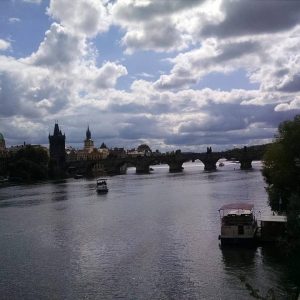
The Charles Bridge in Prague
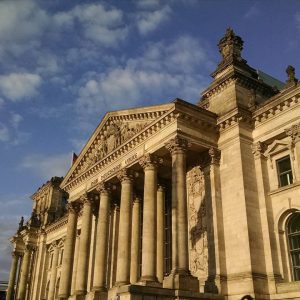
The Bundestag (parliament) building in Berlin
